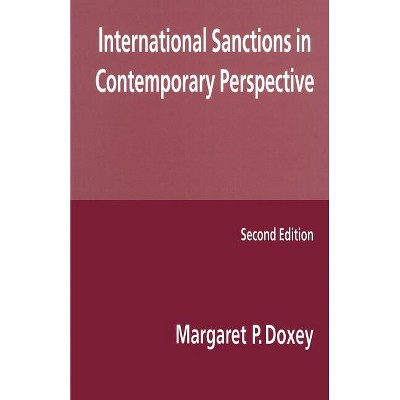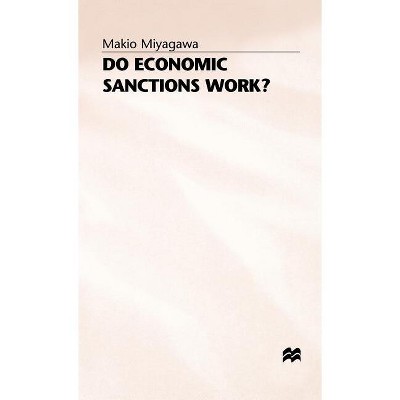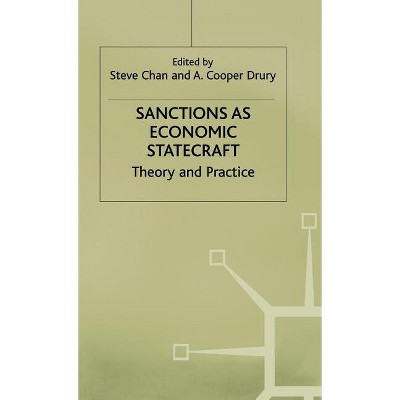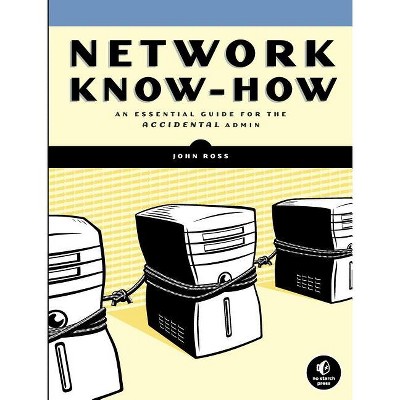Sponsored

Neutrality and International Sanctions - by John Ross (Hardcover)
In Stock
Sponsored
About this item
Highlights
- Ross here presents a comparative historical study of European neutrality policy with special reference to the problem posed to neutral countries by the imposition of international collective sanctions.
- About the Author: JOHN F.L. ROSS is Assistant Professor of Political Science at Northeastern University.
- 262 Pages
- Freedom + Security / Law Enforcement, International
Description
About the Book
Ross here presents a comparative historical study of European neutrality policy with special reference to the problem posed to neutral countries by the imposition of international collective sanctions. The study takes the form of an extended and detailed comparative examination of Swedish and Swiss responses to the League of Nation's embargo against Italy in 1935-36 and the United Nation's sanctions against Rhodesia in 1965-79. Through this analysis, the author explores how and why Swedish and Swiss policies toward sanctions have differed over time and what these differences reveal about neutrality policy in general, particularly in relation to collective security actions taken by international organizations. An ideal supplemental text for graduate and advanced undergraduate courses in comparative politics, international relations, and international organization, this volume will also be of significant benefit to policymakers interested in reviewing past sanctions cases as a guidepost for determining the feasibility of similar operations in the future.
The book is distinguished by its broad historical approach and by its close comparison of the two countries--not only in terms of their sanctions policies but also in terms of their domestic political structures and individual overall formulations of neutrality policy. Ross demonstrates that despite the many background similarities between Sweden and Switzerland, the two states have differed substantially in their responses to sanctions operations. He analyzes the reasons for these differences, challenging traditionally held views that characterize Sweden's policies as changeable and Switzerland's as consistent. Finally, Ross identifies seven explanatory factors, derived from the four case studies, which can be used to determine how other source states--both neutral and non-neutral--might respond to future cases of sanctions.
Book Synopsis
Ross here presents a comparative historical study of European neutrality policy with special reference to the problem posed to neutral countries by the imposition of international collective sanctions. The study takes the form of an extended and detailed comparative examination of Swedish and Swiss responses to the League of Nation's embargo against Italy in 1935-36 and the United Nation's sanctions against Rhodesia in 1965-79. Through this analysis, the author explores how and why Swedish and Swiss policies toward sanctions have differed over time and what these differences reveal about neutrality policy in general, particularly in relation to collective security actions taken by international organizations. An ideal supplemental text for graduate and advanced undergraduate courses in comparative politics, international relations, and international organization, this volume will also be of significant benefit to policymakers interested in reviewing past sanctions cases as a guidepost for determining the feasibility of similar operations in the future.
The book is distinguished by its broad historical approach and by its close comparison of the two countries--not only in terms of their sanctions policies but also in terms of their domestic political structures and individual overall formulations of neutrality policy. Ross demonstrates that despite the many background similarities between Sweden and Switzerland, the two states have differed substantially in their responses to sanctions operations. He analyzes the reasons for these differences, challenging traditionally held views that characterize Sweden's policies as changeable and Switzerland's as consistent. Finally, Ross identifies seven explanatory factors, derived from the four case studies, which can be used to determine how other source states--both neutral and non-neutral--might respond to future cases of sanctions.Review Quotes
?Professor Ross looks at two historic experiences with international sanctions: the League of Nations' sanctions against Italy for the invasion of Abyssinia and the UN's sanctions imposed upon the Ian Smith government in Rhodesia to put pressure on Smith's "illegal racist minority regime." He analyzes the reaction of Sweden and Switzerland, two representative neutral nations, to those international sanctions.?-Booknotes
?The foreign policies of neutral countries have received periodic attention in world-politics literature, ranging from international law texts to studies of neutrals' survival in war (see, for example, E. Karsh's Neutrality and Small States, ). Ross (Northeastern University) examines the circumstances under which neutrals will participate in collective international sanctions such as economic embargoes authorized by international organizations. He explores four case studies of Swedish and Swiss participation/nonparticipation under the League of Nations and United Nations frameworks. As he carefully melds international legal and investigative political science approaches, the author makes subtle and useful distinctions between Swedish and Swiss approaches to neutrality, especially underscoring the reasons for Sweden's generally more activist approach. He stresses the role of both the international context and domestic political elites. Interspersed are illustrative data on trade and economic connections between the neutrals and the states targeted for sanctions. An especially important addition to university and legal libraries; also relevant for business audiences.?-Choice
"Professor Ross looks at two historic experiences with international sanctions: the League of Nations' sanctions against Italy for the invasion of Abyssinia and the UN's sanctions imposed upon the Ian Smith government in Rhodesia to put pressure on Smith's "illegal racist minority regime." He analyzes the reaction of Sweden and Switzerland, two representative neutral nations, to those international sanctions."-Booknotes
"The foreign policies of neutral countries have received periodic attention in world-politics literature, ranging from international law texts to studies of neutrals' survival in war (see, for example, E. Karsh's Neutrality and Small States, ). Ross (Northeastern University) examines the circumstances under which neutrals will participate in collective international sanctions such as economic embargoes authorized by international organizations. He explores four case studies of Swedish and Swiss participation/nonparticipation under the League of Nations and United Nations frameworks. As he carefully melds international legal and investigative political science approaches, the author makes subtle and useful distinctions between Swedish and Swiss approaches to neutrality, especially underscoring the reasons for Sweden's generally more activist approach. He stresses the role of both the international context and domestic political elites. Interspersed are illustrative data on trade and economic connections between the neutrals and the states targeted for sanctions. An especially important addition to university and legal libraries; also relevant for business audiences."-Choice
About the Author
JOHN F.L. ROSS is Assistant Professor of Political Science at Northeastern University. He has written and spoken extensively on European and international affairs and has published articles in several countries, including Sweden and India.










